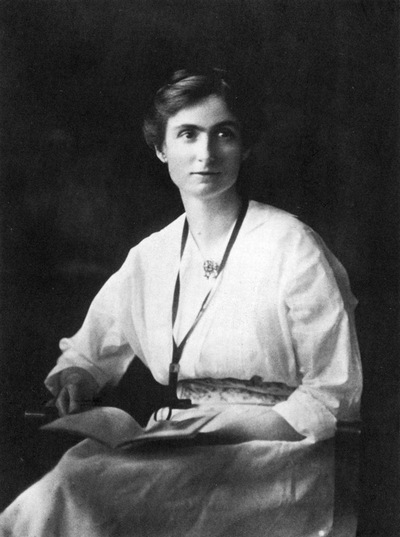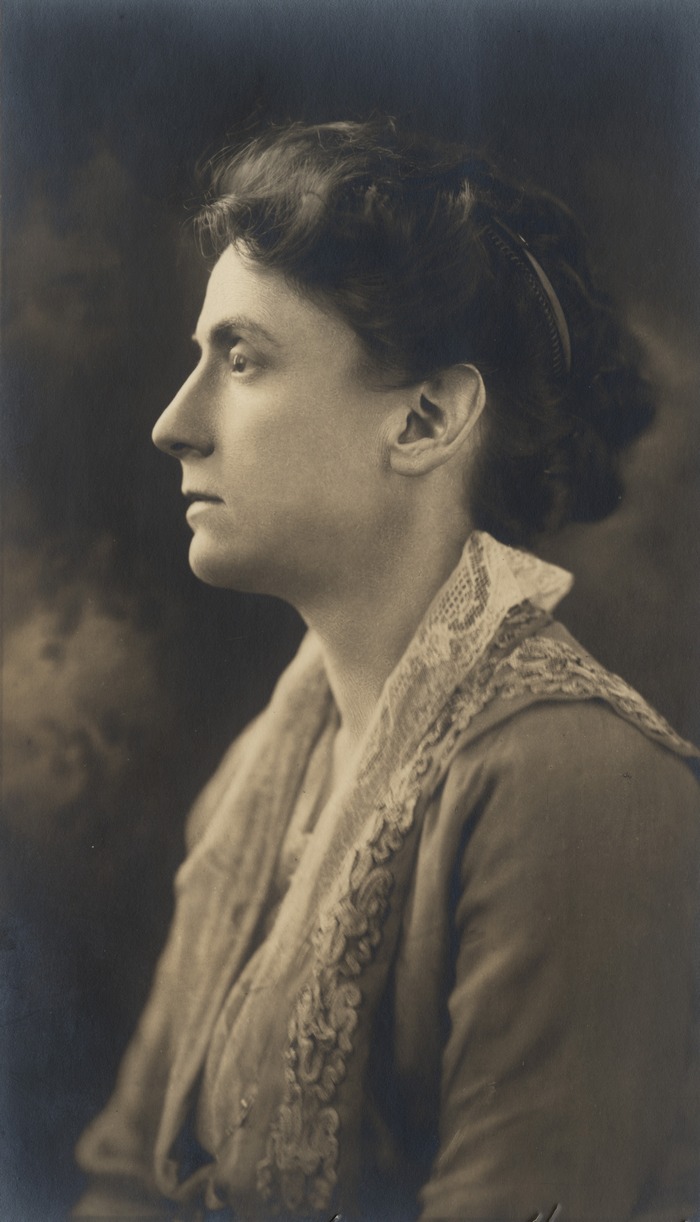Edith Abbott (Edith Abbott)

Edith Abbott
Born September 25, 1876 in Grand Island, Nebraska, Edith was the daughter of Otheman Abbott and Elizabeth Griffin. In 1893, Abbott graduated from Brownell Hall, a girls’ boarding school in Omaha. However, her family could not afford to send her to college, so she began teaching high school in Grand Island. She took correspondence courses and attended summer sessions until she earned a degree from the University of Nebraska in 1901. After two more years as a teacher, Abbott attended the University of Chicago and received a PhD in economics in 1905.
In 1906, Abbott received a Carnegie Fellowship and continued her studies at University College London, and the London School of Economics. She learned from social reformers Sidney Webb and Beatrice Webb, who championed new approaches to dealing with poverty. The Webbs influenced the direction of Abbott’s career. The Webbs were in favour of repealing the British “poor laws” that they viewed as demeaning to people in poverty, and they supported establishing programs to eliminate poverty. While studying in London, Abbott lived part of the time in a social reformers’ settlement in a poverty-stricken area of the East End, where she gained experience in social work. The next year, Abbott returned to the United States and taught economics for a year at Wellesley College.
Abbott also worked as an assistant to Sophonisba Breckinridge, then director of social research at the Chicago School of Civics and Philanthropy. In that position, Abbott contributed to studies of juvenile delinquents and truants. She also created studies on women in industry and problems in the penal system. She lived with her sister, Grace, at Hull House from 1908 to 1920, associating with the men and women who worked in support of Jane Addams and her social reform causes.
In 1920, Abbott and Breckinridge helped arrange the transfer of the School of Civics and Philanthropy to the University of Chicago, where it was renamed to the School of Social Service Administration. The school was the first university-based graduate school of social work. In 1924, Abbott became the school’s dean, the first US woman to become the dean of an American graduate school. She served in that position until 1942, and she emphasized the importance of formal education in social work and the need to include field experience as part of that training. In 1926, Abbott helped establish the Cook County Bureau of Public Welfare.
Abbott published research into several social issues:
Women in Industry (1910)
The Real Jail Problem (1915)
Together with Breckinridge, she published the following studies:
The Delinquent Child and the Home (1912)
Truancy and Non-Attendance in the Chicago Schools (1917)
The two women launched the influential journal Social Service Review in 1927, in addition to launching the University of Chicago Social Service Series of books and monographs, “making use of case records and public documents in a novel and striking way”, as in the classics Immigration: Select Documents and Case Records (1924) and Historical Aspects of the Immigration Problem: Select Documents (1926).
Abbott was a prominent immigration expert, working for reforms that would end exploitation of immigrants. She was appointed chair of the Committee on Crime and the Foreign Born of the Wickersham National Commission on Law Observance and Enforcement (1929–31). In 1935, Abbott helped draft the Social Security Act. From 1942 to 1953, Abbott taught and edited the Social Service Review, which she had co-founded with Breckinridge in 1927. Abbott was known to be a confidant and special consultant to Harry Hopkins, adviser to President Franklin D. Roosevelt. Abbott was also notable for being appointed to a single case on the California Supreme Court in 1950, making her the first woman to sit on the state’s supreme court.
During her career, Abbott wrote over 100 books and articles on a variety of topics. For this reason, she was known as the “passionate statistician.” In her writing, Abbott stressed the importance and the essential need of a public welfare administration, the need for a more humane social welfare system, the responsibility of the state in relation to social problems, and the social aspects of legislation. Abbott spent her last years with her brother Arthur in the family home in Grand Island, where she died of pneumonia in 1957. She left the bulk of her estate to the Grand Island Public Library. She also left a trust for a collection of non-fiction books in memory of her mother, Elizabeth Abbott.
Born
- September, 26, 1876
- Grand Island, Nebraska
Died
- July, 29, 1957
- Grand Island, Nebraska
Cause of Death
- pneumonia
Cemetery
- Grand Island Cemetery
- Grand Island, Nebraska


